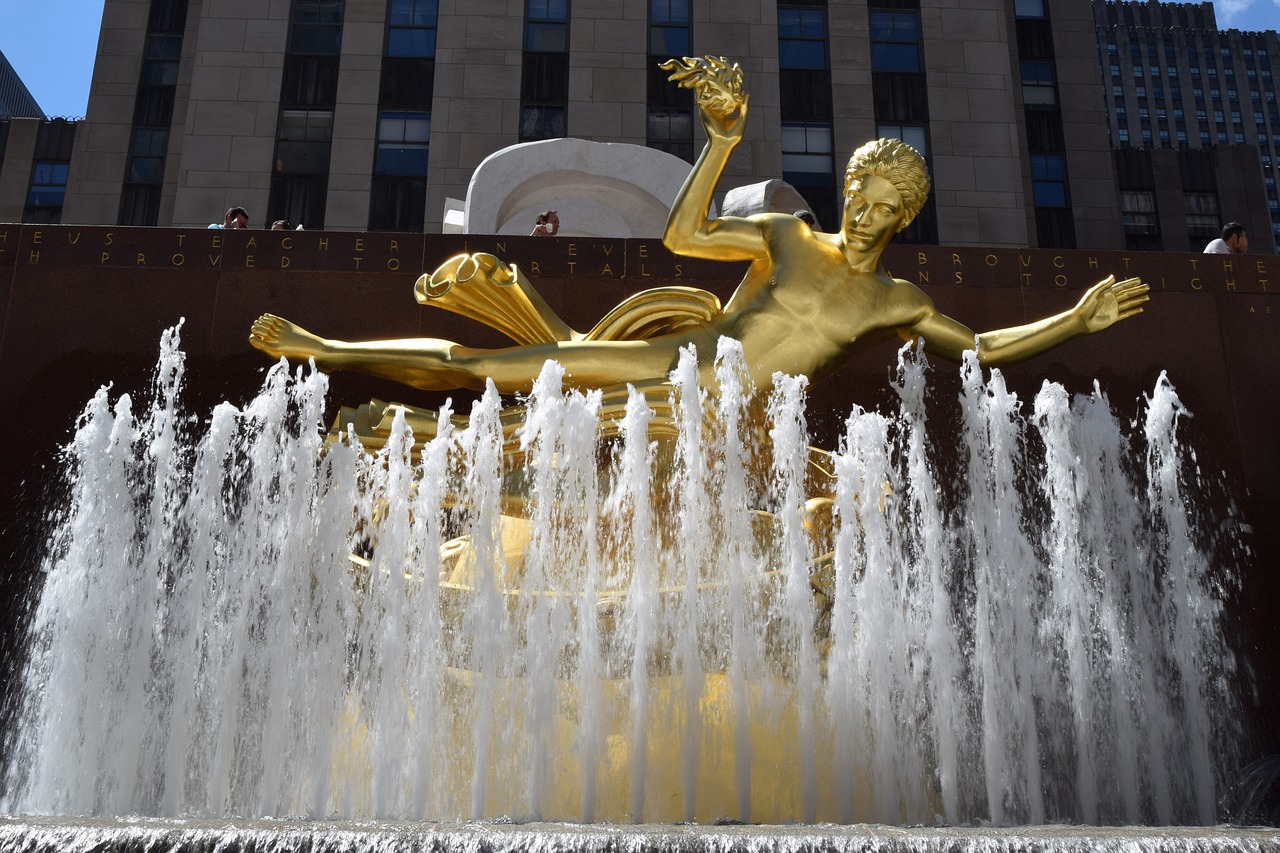The tale of Prometheus has been woven throughout history, evolving with the perspectives of various authors over time. Its origins can be traced back to Hesiod’s Theogony, and subsequent writers have expanded upon the myths, transforming them into deep philosophical explorations. Notably, Greek playwright Aeschylus centered his dramatic works around Prometheus. The only surviving part of this series is the tragedy titled Prometheus Bound, which many scholars believe was never intended to be a standalone play and was initially meant to be followed by a now-lost sequel, Prometheus Unbound. Speculation also exists about an additional play named Prometheus Fire-Bearer.
Exploring Aeschylus’ Prometheus Bound
Prometheus Bound, painted by Thomas Cole in 1847, was inspired by the myth of Prometheus, the Titan son of Iapetus. Iapetus was part of the original pantheon of gods and was overthrown by Zeus and his siblings during the Titanomachy. The role of Prometheus in this celestial conflict varies across narratives. While he did not resist Zeus directly, Aeschylus’ portrayal suggests that Prometheus played a significant role in assisting Zeus to achieve victory. Hesiod referred to him merely as a trickster; however, later interpretations present him as a more sympathetic figure.
The Genesis of Humanity
In the aftermath of the Titanomachy, with most creatures annihilated, Zeus assigned Prometheus and his brother Epimetheus the task of creating new life forms. He endowed them with gifts to distribute among these new beings. While Prometheus crafted humans from clay resembling the gods, Epimetheus hastily formed a variety of animals, granting them Zeus’ blessings. Unfortunately, once completed, the animals were faster and stronger, leaving humans vulnerable and exposed to the cold.
The Theft of Fire
Feeling compassion for mankind, Prometheus approached Zeus to seek permission to teach them about fire. Zeus, deeming fire as a divine secret, declined. Prometheus, in defiance, stole a spark of fire and bestowed it upon humanity. His initial punishment from Zeus was tempered by the joy of humans when they began offering the best portions of their sacrifices to the gods, causing Zeus to relent slightly. Nevertheless, Prometheus further deceived Zeus by advising humans to present him with choices, concealing the superior offerings beneath fat, tricking the god into making a poor choice.
The Creation of Pandora
In retaliation against humanity for their deceit, Zeus summoned Hephaestus, Athena, and Aphrodite to craft a beautiful woman named Pandora. Designed with intriguing qualities and given a mysterious box, she was presented to Epimetheus despite his apprehensions. Pandora’s overwhelming curiosity led her to open the box, unleashing chaos and hardship upon the world, with only hope remaining sealed inside.
Prometheus’ Eternal Punishment
Prometheus faced brutal retribution for his act of defiance. Hephaestus, acting under Zeus’s command, reluctantly chained him to the peaks of the Caucasus Mountains. Daily, an eagle, symbolizing Zeus, would devour his regenerating liver, creating eternal torment for Prometheus, who had contributed so much to humanity.
Aeschylus’ Exploration of Morality
While traditional mythology ignores the implications of Zeus’s wrath, Aeschylus offers a more philosophical examination in Prometheus Bound, portraying Prometheus as both a champion of humanity and a victim of divine cruelty.
The Concept of Strength
The play begins with Kratos and Bia, embodiments of power and violence, enforcing Zeus’s orders to bind Prometheus. Kratos accuses Prometheus of his transgressions and insists that punishment is essential for understanding obedience to Zeus.
Hephaestus’ Reluctance
Hephaestus arrives to chain Prometheus, expressing disapproval of Zeus’s harshness towards him. He warns Prometheus of the lengthy suffering he must endure, emphasizing Zeus’s relentless nature.
Expressions of Sympathy
Chained to the mountain, Prometheus laments his fate. The Oceanids arrive, offering solace and acknowledging his contributions to humanity. He recounts how he saved mankind from Zeus’s wrath by providing them with fire and essential knowledge.
Oceanus’ Offer of Assistance
Oceanus, their father, attempts to persuade Prometheus to seek Zeus’s mercy, but Prometheus declines, fearing for Oceanus’s safety. He resumes speaking of his bountiful gifts to humans, such as architecture, agriculture, animal husbandry, and various arts.
Encountering Io
The narrative introduces Io, a priestess turned into a heifer after catching Zeus’s eye. Io shares her tragic backstory of suffering and flight from Hera’s jealousy, seeking Prometheus’s guidance.
Prophecies of Hope
Prometheus foresees Io’s future, predicting her suffering but promising eventual redemption through one of her descendants who would become a great hero, ultimately freeing Prometheus from his chains.
Hermes Arrives
Hermes, sent by Zeus to extract information regarding Prometheus’s foretelling of the future, engages in a heated exchange with him, insisting on obedience to the king of the gods.
Zeus’ Ultimatum
Hermes issues a dire warning, revealing the extent of Zeus’s fury and the unending torment Prometheus will face unless he complies and reveals the identity of the hero destined to challenge Zeus.
A Tragic conclusion
Despite Hermes’s warnings, Prometheus remains obstinate and refuses to surrender information. The Oceanids resolve to stay with Prometheus, but the play climaxes with an earthquake and a catastrophic descent into darkness.
A Brighter Future
Though Prometheus Bound culminates in despair, the myth ultimately shifts towards hope, with Prometheus eventually freed by Heracles. On his journey fulfilling his twelve labors, Heracles confronts the torturous eagle and liberates Prometheus, with Zeus permitting him to regain his freedom.



